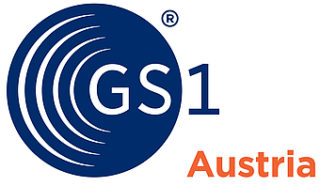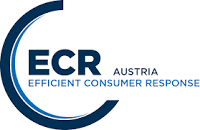Interview with Tomasz Kuciel on ViDA
Preparing for ViDA: why e-invoices are just the tip of the iceberg
The current EU legislative proposal “VAT in the Digital Age” (ViDA) aims to adapt the VAT system in the EU to the digital age. It affects all companies across all sectors, particularly in the cross-border movement of goods and services.
The new directive aims to reduce the administrative burden and costs for companies, cut red tape in the B2B internal market and simplify tax obligations. Another goal is to combat tax fraud. On the one hand, ViDA will bring simplifications, e.g., through one-stop-shop procedures (a VAT number from any EU country is sufficient to be able to do business in all countries in future). On the other hand, there are also new digital reporting obligations for cross-border sales (e-reporting) and the mandatory issuing of so-called e-invoices. All companies are potentially affected, as ViDA also includes optional national reporting obligations.
The Belgian EU Council Presidency has included ViDA in its list of priorities. Although the mandatory implementation of e-reporting and e-invoicing is planned to take effect from January 1, 2028 at the earliest, it requires long-term planning, particularly with regard to (digital) supply chains and ERP systems.
Tomasz Kuciel, head of the ViDA Competence Center at EDITEL, shares in an interview how companies can best prepare for this.
Mr. Kuciel, what impact will the EU’s proposed ViDA have on the settlement of cross-border B2B transactions?
First of all, it is important to understand that the main objective of the ViDA agenda and the national programs already implemented in Italy, Hungary, and Poland is not e-invoicing, but e-reporting. The aim here is to combat VAT loopholes and tax carousel fraud. While Austria and Germany recently recorded a VAT gap of 2.8 percent, this amounts to 10.8 percent in Italy and as much as 36.7 percent in Romania (as of 2021). The initiative aims to make the VAT system more efficient, simpler, and more resistant to fraud, while at the same time reducing distortions of competition. The ViDA agenda envisages the introduction of electronic reporting of all cross-border transactions in real time by 2028 – possibly by 2030. In addition, electronic invoicing based on structured data will be established as the standard procedure for domestic transactions. According to estimates, the abolition of old reporting obligations in the EU could lead to cost savings of around EUR 35 billion within ten years.
Will companies still be able to send PDF invoices by e-mail in the future? How will electronic invoicing evolve?
Electronic invoices, and in particular the data to be reported to tax authorities, must be structured, i.e., in XML or EDIFACT format, as we know it from the world of Electronic Data Interchange (EDI). Only e-invoices that contain the required information and are issued, transmitted, and received in a structured electronic format that enables automatic and electronic processing of the content will be accepted. PDF invoices sent by e-mail will no longer be treated as e-invoices in the future. The ViDA agenda will thus become a catalyst for digital B2B and B2G data exchange.
How is EDITEL preparing for this?
Based on our many years of experience with e-invoices, we have set up a competence center for ViDA in the EDITEL Group to support our clients in the long-term and forward-looking planning of the switch. We are already very well prepared. Structured invoices are an essential part of our expertise and we have been working with them since the 1990s. In Poland, for example, we developed a comprehensive solution for integration with the national system for electronic invoices (KSeF), although the introduction of KSeF was recently postponed by the government by two years to February 1, 2026. We also offer access to the European PEPPOL network (Pan-European Public Procurement OnLine): we are a certified access point, which is relevant for B2G e-invoices to public administrations in all EU countries and partly for B2B connections.
Which e-reporting and e-invoicing models are currently being discussed?
Various e-reporting and e-invoicing models are currently being evaluated. One variation of ViDA are systems for continuous transaction control (CTC) in which transactions are to be reported to tax authorities digitally and in real time.
Some countries rely on a centralized model in which an invoice is first sent to the tax authorities, checked by them and only then formally sent to the invoice recipient. This approach is favored by Italy, Serbia, and Poland.
Hungary, on the other hand, uses the “Real-Time Reporting Model” (RTIR), in which only certain invoice content has to be reported to the authorities in real time. The invoice itself is sent directly to the recipient. Despite the EU’s standardization efforts, different approaches exist.
What services does EDITEL’s ViDA Competence Center offer and how are affected companies specifically supported?
An invoice is more than just a request for payment – it is the final step in a complex series of business communications. An e-invoice is therefore the tip of the iceberg, under which lies a multitude of processes, ranging from the order to the delivery confirmation. Equipped with this extensive process expertise, the EDITEL Group supports all forms of national e-invoicing models. This means that with just one single connection to EDITEL, companies have access to all their business partners, regardless of their e-invoicing standards or the systems they use. This enables secure and efficient communication, both within and outside the EU. We enable seamless integration with CTC systems across the EU and beyond. Companies are welcome to contact us at any time with questions about ViDA.
Thank you very much for the interview!
Symbolfoto copyright iStockphoto RomoloTavani
Portraitfoto copyright Rafal Sztyk




